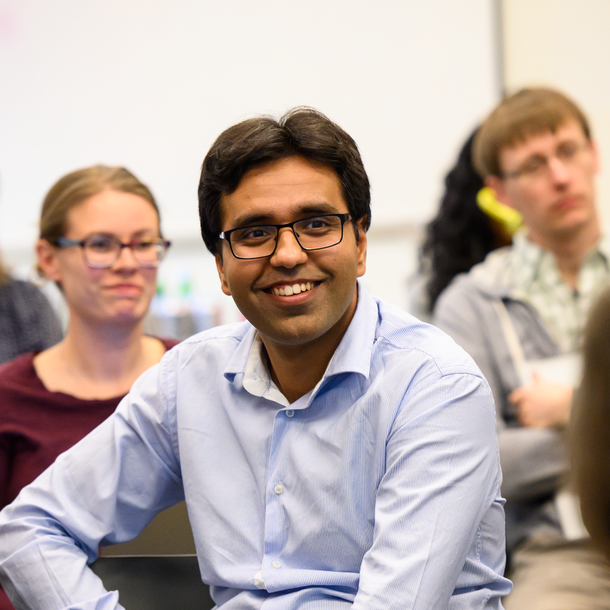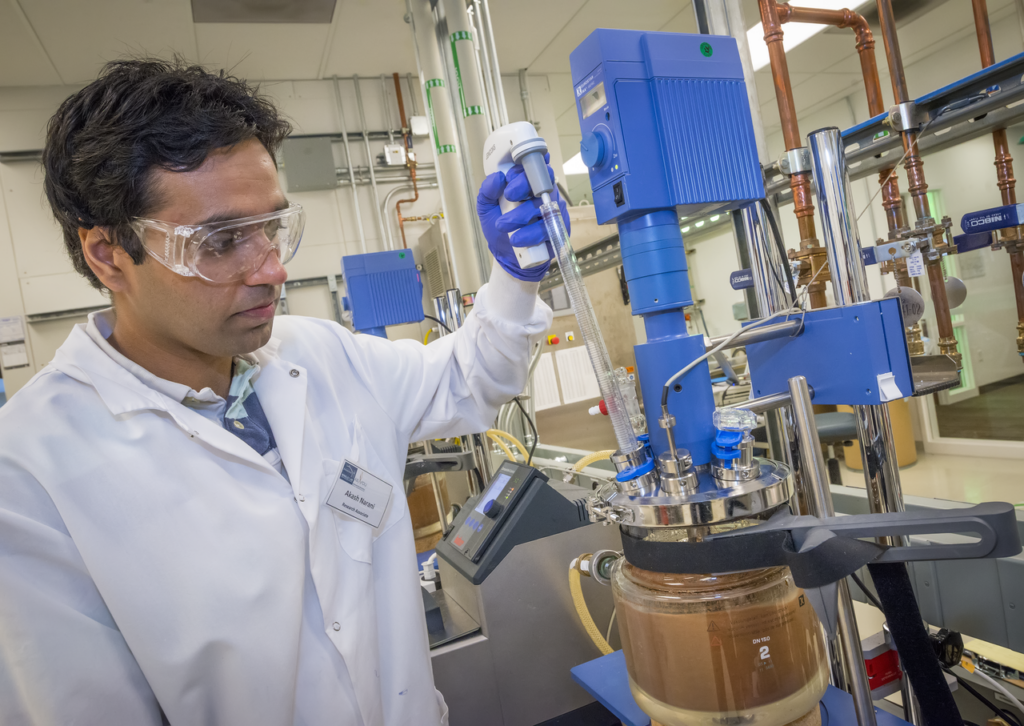
Akash Narani is a former principal engineer at ABPDU. He is currently a Principal Engineer, MSAT and Operations at ZymoChem.
How did you become interested in biomanufacturing?
I was first excited by biofuels when there was a lot of activity in this space in the mid-2000s. I came to the U.S. in 2008 to pursue my master’s degree in chemical engineering at the University at Buffalo. My master’s thesis was focused on the interaction of cellulose with ionic liquids and aqueous solvents. After finishing my master’s, I worked as a process engineer at the Bio-Energy Research Center (now Advanced Fuels Center) affiliated with Montana State University-Northern, where I worked on a Department of Energy funded project converting biomass to advanced fuels and other value-added chemicals. I was also testing biodiesel and biodiesel blends for fuel properties in accordance with the ASTM standards. In 2013, I got the opportunity to work at the ABPDU.
What was your experience like at ABPDU?

I joined ABPDU as a process engineer and was initially working on lignocellulosic biomass pretreatment. As ABPDU began partnering with more and more companies in the biomanufacturing space, I contributed most of my time to these collaborative projects, specifically in fermentation and downstream and recovery. This gave me the opportunity to learn more about ABPDU’s bioprocess equipment and facility as a whole. I also was responsible for providing engineering support for ABPDU’s utilities and equipment. I ended up working with 21 startups total, and for 15 of those collaborations I was the project lead, where I managed the project from pre-contracting to project execution to the project completion stage, and learned a lot about project management and agile practices. I went on to complete a certification in project management from UC Berkeley while I was at ABPDU.

In 2017, I was named one of the American Institute of Chemical Engineers’ 35 under 35. It was a big accomplishment for me, both professionally and personally. From there on, I started managing bioprocess development, scale up projects, and facility operations at ABPDU. I led a team of 4-5 people that made sure industry collaboration projects were running safely and that our facility was up-to-date with state-of-the-art equipment. I had one such opportunity to oversee the installation, testing and commissioning of the Sartorius Ambr® 250, a high throughput fermentation system. As I became more interested in facility design and project leadership, I enrolled in Stanford University’s LEAD Program and earned a certificate in corporate innovation. The program was very helpful in learning more about the business aspects of startups and other companies.

What did you do after ABPDU?
After I left ABPDU, I joined Codexis in 2021 as a senior scientist in the bioprocess development group. I went on to lead this group as an associate director where I provided technical oversight and strategic guidance in the areas of process development, scale up, tech transfer, manufacturing, and execution of robust upstream and downstream microbial processes for pharma manufacturing, food, and life sciences enzymes. One of the most notable accomplishments during my time at Codexis was making enzymes for Paxlovid, the antiviral pill used to treat COVID-19. I was responsible for taking the project from the bench to pilot scale and then all the way to manufacturing.
Today, I am a principal engineer at ZymoChem, where I am working on scaling bio-based technologies from bench scale to manufacturing, at scales in the tens and thousands of liters. I’m also involved in operations and keeping our facilities up to date with the latest equipment.
A lot of the skills I use in my current role came from my time at ABPDU — from building relationships with the startup community, to having experience scaling up a variety of technologies. Now I’m working at higher scales of manufacturing than I did at ABPDU, but those core engineering principles remain the same. My experience from ABPDU in project management, facility management and safety has helped me move into more operational roles as well.
What is your outlook on the future of the biomanufacturing industry?
I’m excited about the possibility of creating biomaterials and bioproducts that have less carbon footprint and less of an impact on the environment. I see myself continuing in this space and taking on different processes and projects. I definitely see a lot of future in this industry. I think upcoming generations are becoming more aware of climate change and as a result, they will be more interested in sustainable products. I hope such interest will stimulate the biomanufacturing industry and help it rise to meet the need and demand for sustainable products.